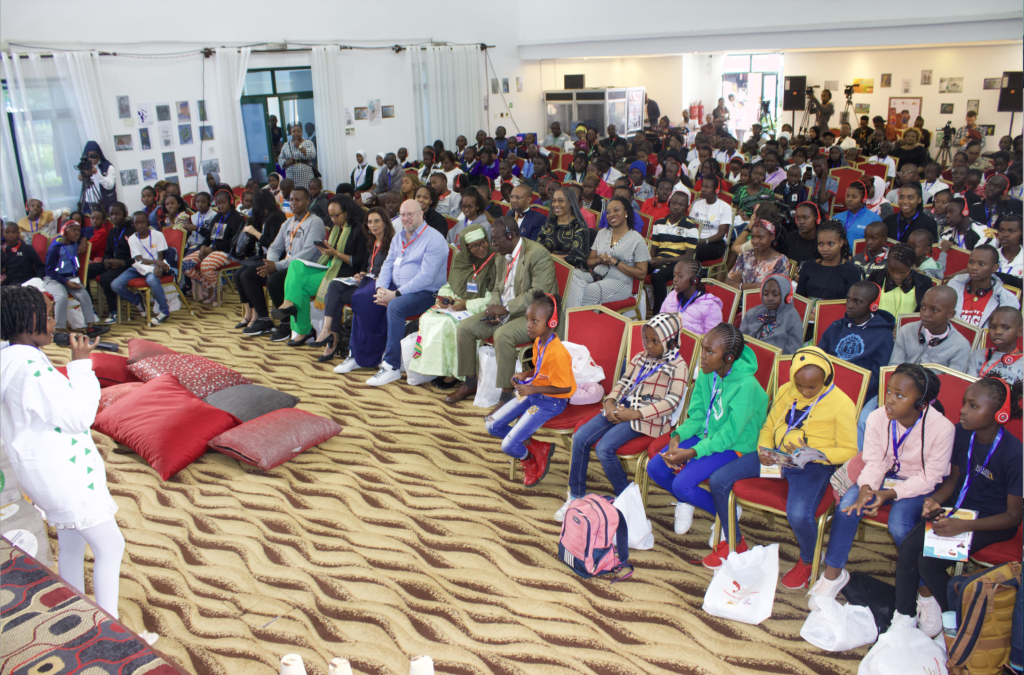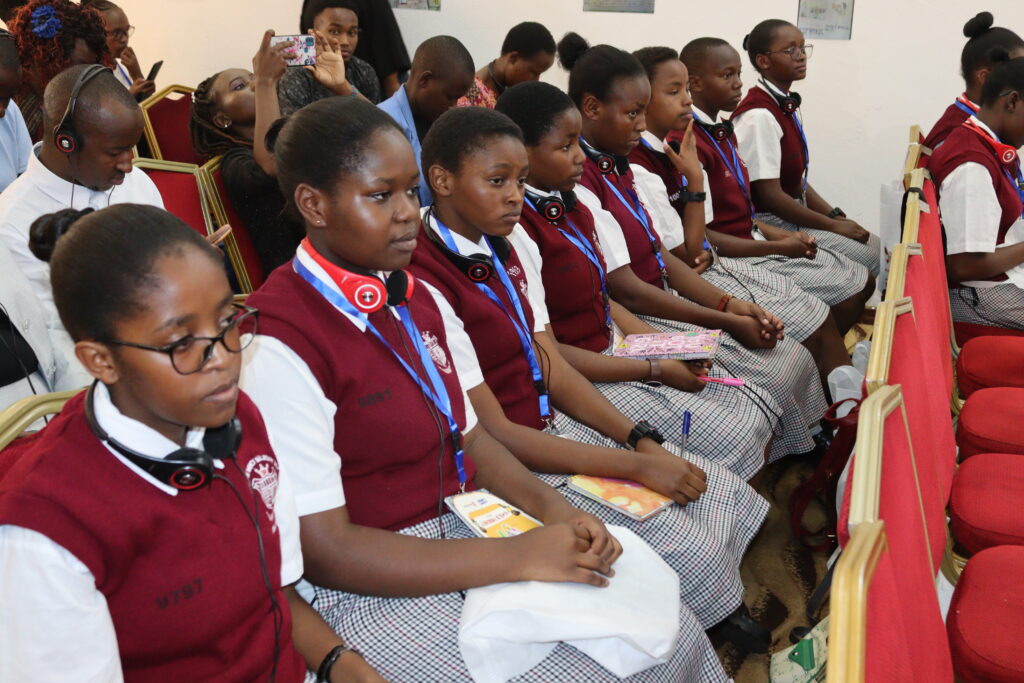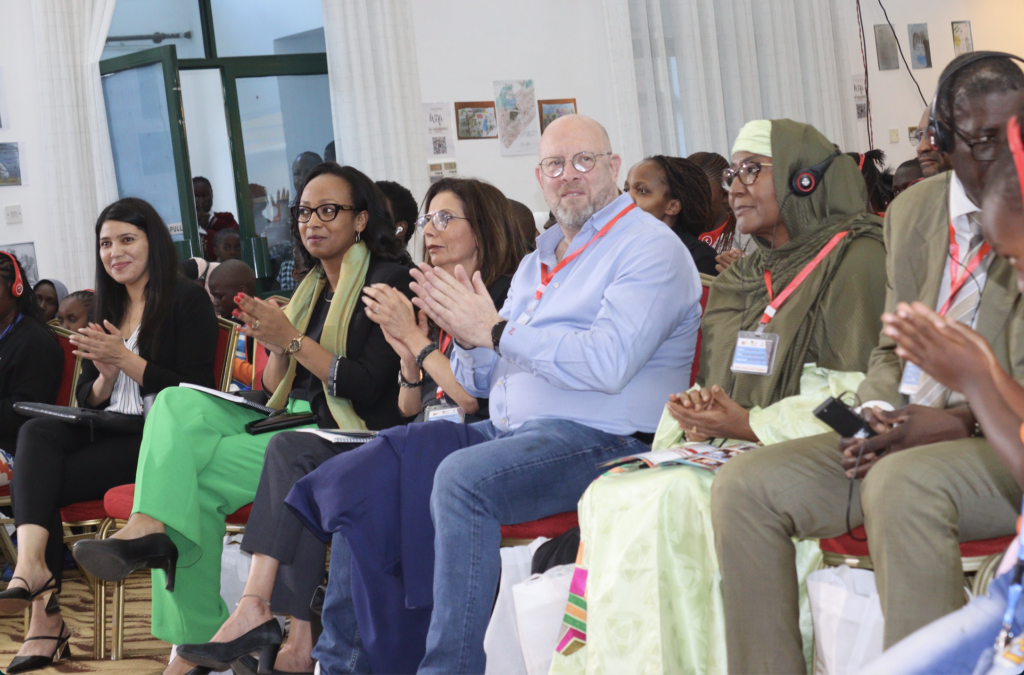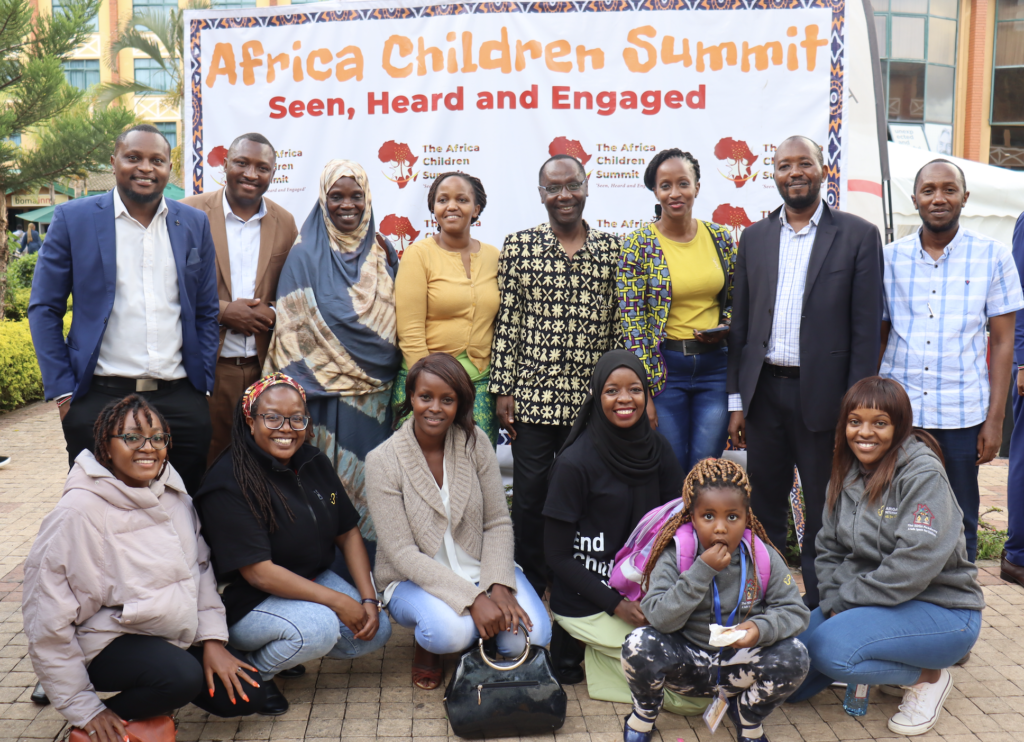Have you ever attended a forum, session, workshop, or conversation where children are in charge? Chances are, you have not experienced this often or even at all. The inaugural Africa Children Summit, which took place in Nairobi, Kenya from 10th – 12th April, was such unique space entirely designed for and by children to be “Seen, Heard and Engaged”.

The summit was conceptualized, planned and facilitated by children from across Africa, culminating in a 3-day event that brought together over 250 in-person participants from 9 countries (Mali, Kenya, Rwanda, Sierra Leone, South Africa, Tanzania, Uganda, Zambia and Zimbabwe), and up to 700 virtual participants from a host of countries across Africa and beyond.
“If it is indeed our day then we should participate in organizing it, determining the theme, and working with adults to ensure it is genuinely our day!” expressed Omar, a 17-year-old from Kenya.
Children discussed pertinent matters concerning them, such as education, climate change, violence against children, online child protection, and health, with policy makers and parents/caregivers. They called on governments and other stakeholders to provide sufficient funding and facilities for schools, with special attention to physically challenged children, and emphasized the need to have education available, acceptable, adaptable and equal across Africa.

“We need to have gender equality when providing education to all children” expressed Francine, a 16-year-old from Zambia.
Margarate, a child from South Africa, emphasized the need for safe online spaces for children to learn and interact. This echoes the call made by others who advocate for policies and measures to protect children online, rather than discouraging them from using or engaging with online platforms. These advocates point to the essential role that online spaces played in facilitating virtual learning during the COVID-19 pandemic lockdown period, and urge society to prioritize the creation of safe online environments for children.
During a side event focused on ending violence against children, Dr. Najat Maalla, the United Nations Special Representative on Violence Against Children, discussed the issue with attendees. At the event, children expressed their regret that violence against them is still prevalent, even in what should be safe spaces such as homes and schools.
Upendo, a child from Kenya, highlighted that emotional violence can be just as damaging as physical violence and stressed the need for emotional and psychological care.
Dr. Najat contributed to the discussion by revealing that violence against children was a widespread issue that involves harmful cultural practices still present in Africa. She emphasized the need for a comprehensive approach to addressing this problem, one that involves empowering and involving children, communities, religious and traditional leaders in advocating for change and monitoring the actions of governments.

Contributing to this subject was Dr. Mustafa Y. Ali; Secretary General of Arigatou International’s Global Network of Religions for Children (GNRC) who shared that Arigatou International uses religion as a resource to focus on the challenges and practices that undermine, and promote the rights of children.
The children highlighted that violence among them was still rampant, even in what are supposed to be safe spaces for them like homes and schools. They stressed the need for emotional and psychological care, and for policies and measures to be put in place to address violence against children broadly.
Arigatou International was one of the 23 partnering organizations for the Africa Children Summit and presented the SDGs Academy for Children as a safe space for children to participate in coming up with solutions to create a better world around them.
“We at Arigatou International are excited to see the outcomes of this summit, and the impact that your ideas and actions will have on Africa and the world, and we are committed to support your efforts in any way we can – especially though our Arigatou SDGs Academy for Children” expressed Fred Nyabera, Director, Arigatou International – End Child Poverty. The summit concluded with children handing over a position paper with recommendations to policy makers and government officials. The recommendations highlighted key action areas on the thematic areas discussed by children in the summit.
